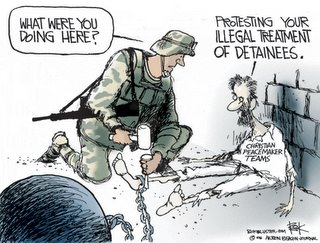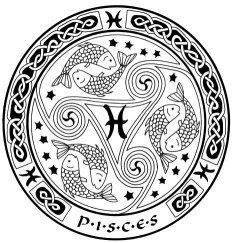power without purpose

Some look at things that are, and ask why. I dream of things that never were and ask why not.

“News that gay men can be sperm donors must be welcome to couples requiring assisted reproductive technology. However, evidence is accumulating that sexual orientation is the result of gene-environment interaction; sexual orientation has a heritable component. Thus, using sperm from gay donors may have the potential of passing the gay gene(s) to the next generation. Patients requiring such service should be informed of such potential."— Frank Sin, Associate Professor (University of Canterbury)

 --------------------
--------------------

Concerns about terrorism have led Western governments to re-examine their immigration and refugee policies, with the aim of tightening the rules for entry, facilitating the integration of newcomers into mainstream society and more easily finding and removing the ones who pose genuine threats to security. Some have implemented or are considering loyalty oaths for prospective citizens. There is nothing wrong with asking people to promise to uphold the laws of the country in which they have chosen to make their home. But there is a great deal wrong with screening people for their thoughts and opinions.
This unacceptable infringement of individual freedoms enshrined in the very constitution the new citizens are being asked to uphold could happen in Canada if a key recommendation in a study issued by the Fraser Institute is followed to its logical conclusion. The study, written by Martin Collacott, a former Canadian diplomat and government counterterrorism expert, focuses on the very real shortcomings of federal refugee policies and the inadequate safeguards that have made the country vulnerable to entry by terrorists and their supporters. Among the remedies, he argues that newcomers should be required to make “a more explicit commitment to Canada and Canadian values” as a condition of admission, and that they should understand that failure “to live up to our expectations” will result in their removal. But he acknowledges that “it will often not be easy to identify those who do not share our values — or, for that matter, even to determine how such a judgment can best be made.”
That's the problem in a nutshell. The impetus for oaths of allegiance and loyalty tests is understandable, particularly in Europe, where the growing alienation of large immigrant communities has created fertile ground for the recruitment to terrorism and other criminality of disaffected young people. Western democracies are wrestling with the problem of how to integrate people who may not accept such bedrock societal values as religious tolerance, and of how to identify the potential extremists among them. However, stigmatizing an entire immigrant group will not make this task any easier. It is legitimate to worry that newcomers may not be accepting the broader values of the society in which they have chosen to rebuild their lives. But screening based on individual beliefs and values is not the answer.

If there's anything more annoying than the shrill demagoguery and Bush-bashing that marked the Liberal election campaign, it's the sententious navel-gazing that's followed it. Since Jan. 23, countless misty-eyed Liberals -- from name-brand senators to ambitious junior apparatchiks -- have come forward to explain how their party can reclaim its ancient glory. In speeches, on the comment pages of newspapers and in mass-circulated e-mails, the cliché-studded Liberal cri de coeur has become a literary genre unto itself.
But even in a crowded field, Jim de Wilde's op-ed in Friday's Toronto Star stands out. The author is described as a "long-time Liberal and academic who is currently co-teaching an MBA course on Venture Capital Strategies at the Rotman School of Business." By combining the institutionalized sanctimony of the Liberal party with the jargon addiction that pervades biz school, he has succeeded in producing the quintessential post-Martin Liberal manifesto -- a document that at once says virtually nothing, yet also speaks volumes about the state of his party. [O]n and on it goes -- vacant bromide after vacant bromide. Until the reader gets to a sentence so perfectly meaningless that it inspires a perverse sort of awe: Canadian citizens, de Wilde tells us, need to "understand the importance of Canada being a metaphor for global citizenship in the current era of global politics."
[However, de Wilde's] soaring vacuities are in fact merely symptoms of a far larger problem confronting the Liberal party -- a problem that competent editing can't fix. Under Jean Chretien and Paul Martin, the Liberal party had no ideology, just a will to power. Now that this amoral approach has been discredited by Adscam, Liberals are casting their minds back through the decades, trying to remember what it is they're supposed to stand for -- an exercise that leads them to such Trudeau-era chestnuts as "multicultural value propositions" and "creating national projects."
But Trudeau, misguided as he was, at least put meat on the bone with real-life policies such as the National Energy Program, bilingualism, the Charter of Rights and cultural nationalism. Whatever we think of them now, they at least were grand ideas that captured the imagination. The problem for Liberals is that this era is long gone. If anything, Canadians now want the federal government rolled back -- most crucially, to give provinces more room to experiment with private health care. With gay marriage yesterday's news, and Martin's Kyoto plan shown up as a sham in Montreal, the Liberals' one hope of kindling Trudeauvian fervour in the last election was a Soviet-style child-care plan -- which voters rejected in favour of Stephen Harper's simple cash-for-kids model.
De Wilde and his fellow Liberal idealists are caught between the party's instinct to dazzle voters with interventionist pan-national programs and the reality that all of the grandiose schemes worth pursuing (along with many others that weren't) are already with us. De Wilde's exhortations reflect the Liberals' awkward effort to square this circle: lofty, faux-inspiring slogans that vaguely summon the spirit of yesterday's champions without actually offering any substantial ideas.
Canadians aren't looking for another left-wing revolution. They're looking for honest, centrist governance. That's what Harper promised. And if he provides it, the Liberals will have all the time in the world to write their tedious manifestos and hone their vision of "21st-century 'liberal cosmopolitanism'."
Whatever that is.